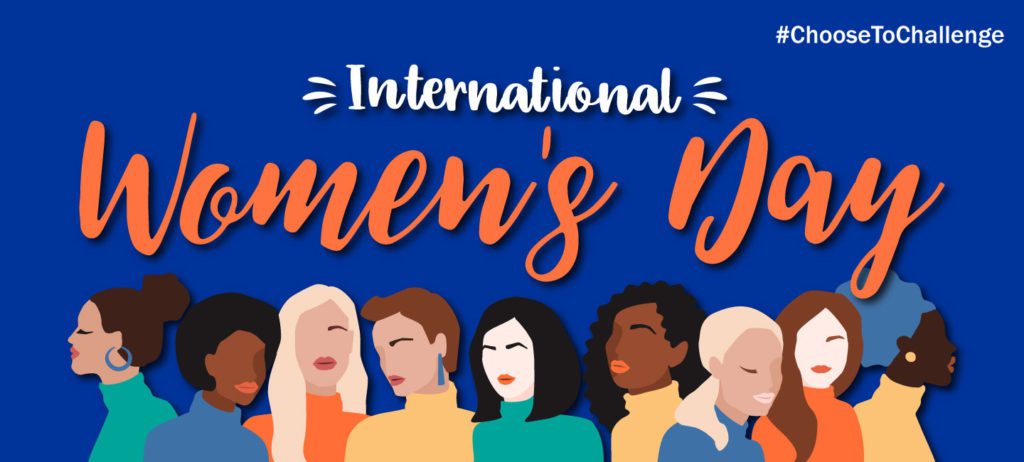Welcome to March 8, the day of the woman—officially recognized as International Women’s Day (IWD). On this day, the entire globe pauses to reflect on and celebrate the social, economic, cultural, and political achievements of the female race. Additionally, each individual in every generation is encouraged to join forces in bridging the gap between the genders.

Since 1911, this day invites us all to take notice of the historical impacts of women and acknowledge the necessity of her brilliance and contribution to society—past, present, and future. It’s a rallying cry, demanding life and opportunities that mirror that of the opposite sex. IWD’s method for doing so is to create space for:
Celebrating women’s achievements
- Raising awareness about women’s equality
- Lobbying for accelerated gender parity
- Fundraising for female-focused charities
This year specifically dares us to #ChooseToChallenge. Outline in the grassroots campaign, “a challenged world is an alert world, and from challenge comes change.” In other words, when we become aware of opposition or difficulties, we have been awakened and warned of something that can not remain. None of us want to rest in our challenges. Instead, we expend all of our efforts in changing our hard. We innovate and fight for a new situation, a new status quo.
Today we are asked to take a hard look at the barriers and hurdles that stand in the way of gender equality and take action to eradicate these challenges. Areas IWD asks us to consider reviewing include the creatives, technology, sports, workplace environment, women’s empowerment, and health. Yes, healthcare is an area in a woman’s life where she experiences disparity.
Lack of education or misinformation is a huge culprit that contributes to the inequality women face regarding their health. A day like IWD allows us intentional time to help raise greater awareness around women’s well-being. Raising awareness about health issues aids in the prevention and management of certain ailments. Some health-related conditions are drenched in years of bias caused by misinformation. We can help by shedding light on the truth, separating fact from fiction, in turn, removing the stigma that creates ignorance and produces communities of marginalized groups.
For example, coronary heart disease is a condition highlighted by IWD that women struggle with due to unawareness, limited knowledge, and mounds of misinformation. It is the number one killer of women exceeding breast cancer. According to Harvard Medical School, of those who have suffered a first heart attack, within five years, 47% of women die, develop heart failure, or suffer from a stroke, while only 36% of men experience the same outcomes.
A study conducted by the University of Leeds notes heart attacks as being traditionally seen as a man’s disease, leading to misdiagnoses and inaccurate treatments among women patients. The study looks back over the last decade, revealing “more than 8,200 preventable heart attack deaths among women in England and Wales” alone. The British Heart Foundation identifies causes as:
- women are less likely than men to recognize symptoms of a heart attack
- a woman is 50% more likely than a man to receive the wrong diagnosis
- women are less likely than men to receive life-saving treatments
- women are less likely to be given medicine to stop a second heart attack
Education is central to turning these stats around. The American Heart Association (AHA) is a proponent of happy heart health among women and shares extensive information to assist. The organization points out some of the unique symptoms women may experience as signs of a heart attack. Additionally, AHA helps us understand measures when implemented today, can prevent and minimize coronary heart disease risks tomorrow.
Another pivotal element decreasing heart failure fatality in women is proper diagnosis and treatment. Last month, the POCUS Certification Academy™ provided various resources detailing the vital role point-of-care ultrasound (POCUS) plays in cardiac health. We featured blogs that presented several cases exemplifying POCUS as instrumental in delivering the swift and accurate diagnosis needed to inform appropriate, life-saving treatments. You will also find webinars, primary cases, and infographics further emphasizing POCUS as an aide in combating most cardiovascular diseases.
Together we can all help create an inclusive world. Assisting women to take a position of empowerment over her well-being is how we choose to challenge. Let’s commit and continue to educate on and spread the awareness of life-saving and health preventative measures that bring equality to women’s wellness.
We begin today, one heart measure at a time!
#ChooseToChallenge #IWD2021
_____
Want to learn more about the impact POCUS is having on patient care? Visit our education and training resources page for more in-depth insights. Also, check out our POCUS Cardiac certification here.





















